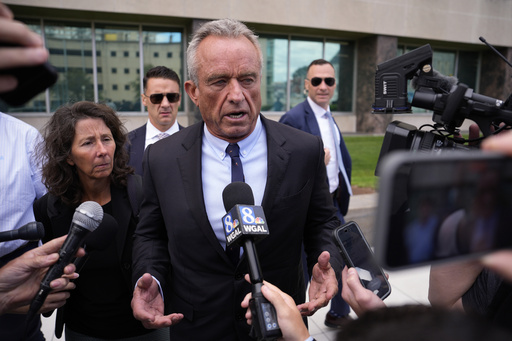In Pennsylvania, legal battles have emerged regarding third-party candidates’ inclusion on the presidential ballot. The left-wing Party for Socialism and Liberation faced challenges from Democrats, resulting in their candidate, Claudia De la Cruz, being removed from the ballot due to paperwork issues. The court found that seven out of 19 electors named in the party’s paperwork were registered as Democrats, violating a disaffiliation provision.
There is ongoing legal maneuvering surrounding third-party candidates seeking ballot access in Pennsylvania. Independent candidate Cornel West is facing challenges, one of which is being contested by a lawyer with ties to the Republican Party. The Secretary of State’s office rejected West’s paperwork for lacking required affidavits for a majority of the presidential electors before the filing deadline.
In an election expected to be closely contested between Republican nominee Donald Trump and Democratic nominee Kamala Harris, third-party candidates are seen as potential threats by both major parties. Jill Stein of the Green Party and Chase Oliver of the Libertarian Party managed to get on the ballot without facing challenges, further highlighting the complex legal landscape for third-party candidates in Pennsylvania.
The legal battles extend to other third-party candidates such as Robert F. Kennedy Jr. and the Constitution Party, as challenges from Democrats and Republicans aim to navigate the intricacies of state election laws. Judge Bonnie Brigance Leadbetter, in the case of the Party for Socialism and Liberation, upheld the disqualification citing a state law provision prohibiting minor-party candidates from being registered with a major party close to the primary election.
De la Cruz’s lawyers argued for substitution of electors or accepting fewer electoral votes, but Leadbetter emphasized that such post-deadline changes are not permitted under Pennsylvania law. The U.S. Constitution’s requirement for proportional representation in the Electoral College further complicates the situation, making adjustments to electoral votes within the state unfeasible.
